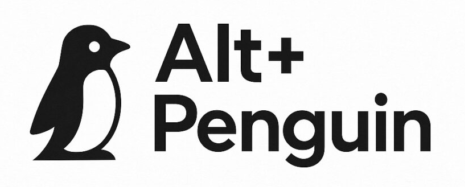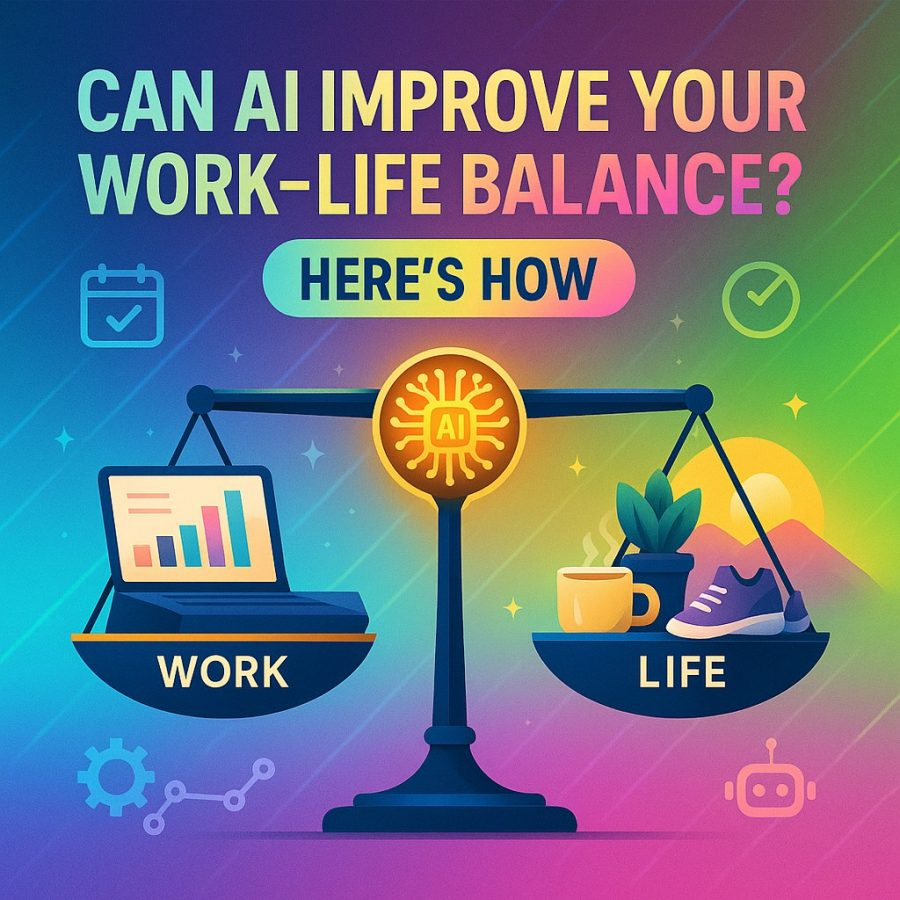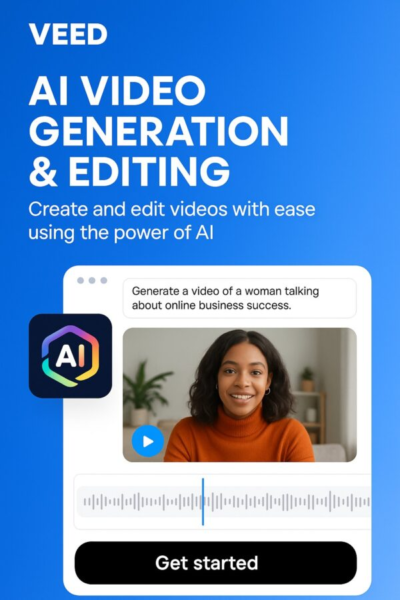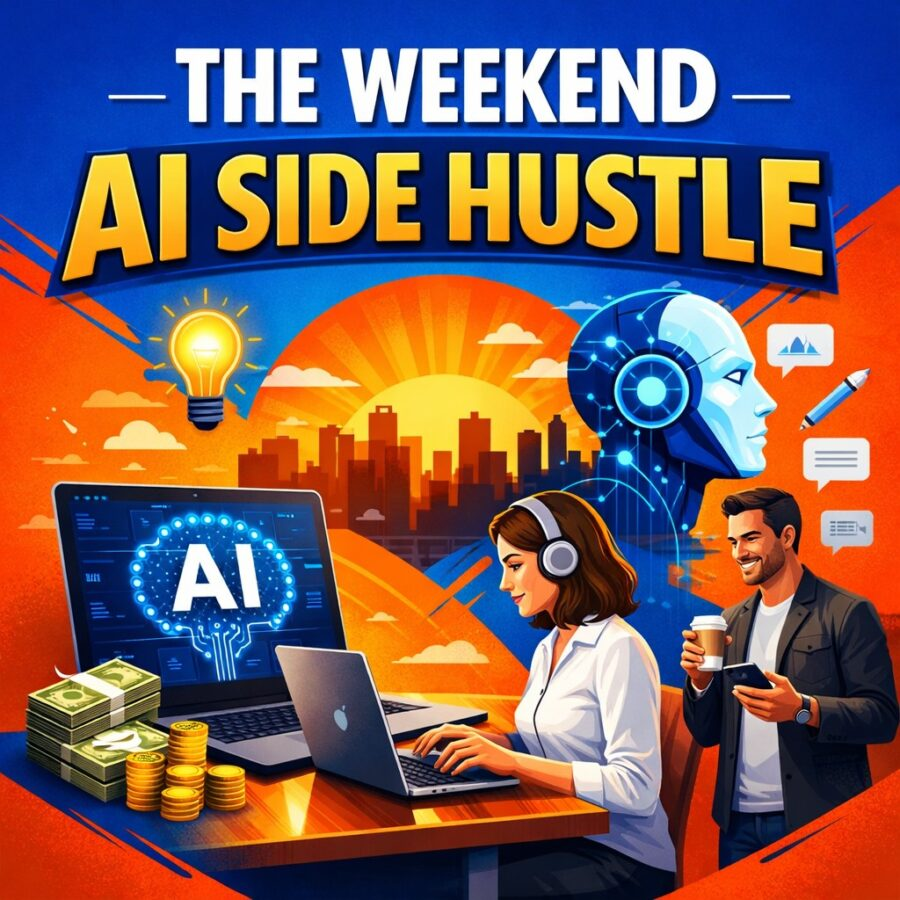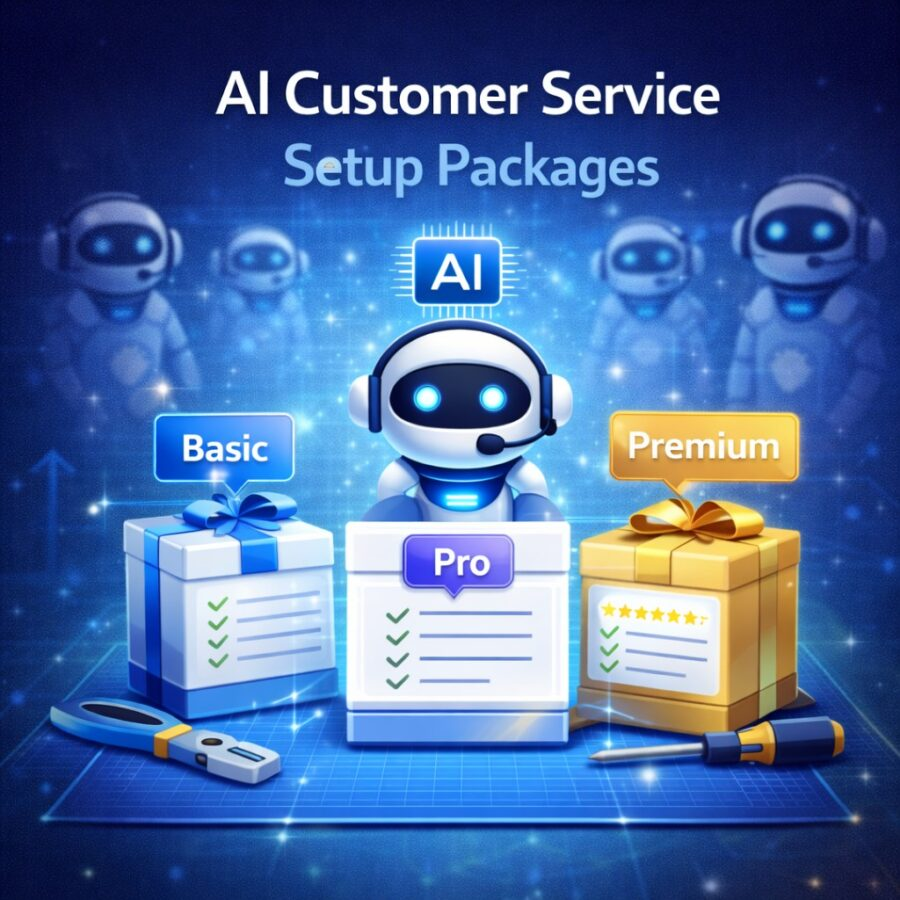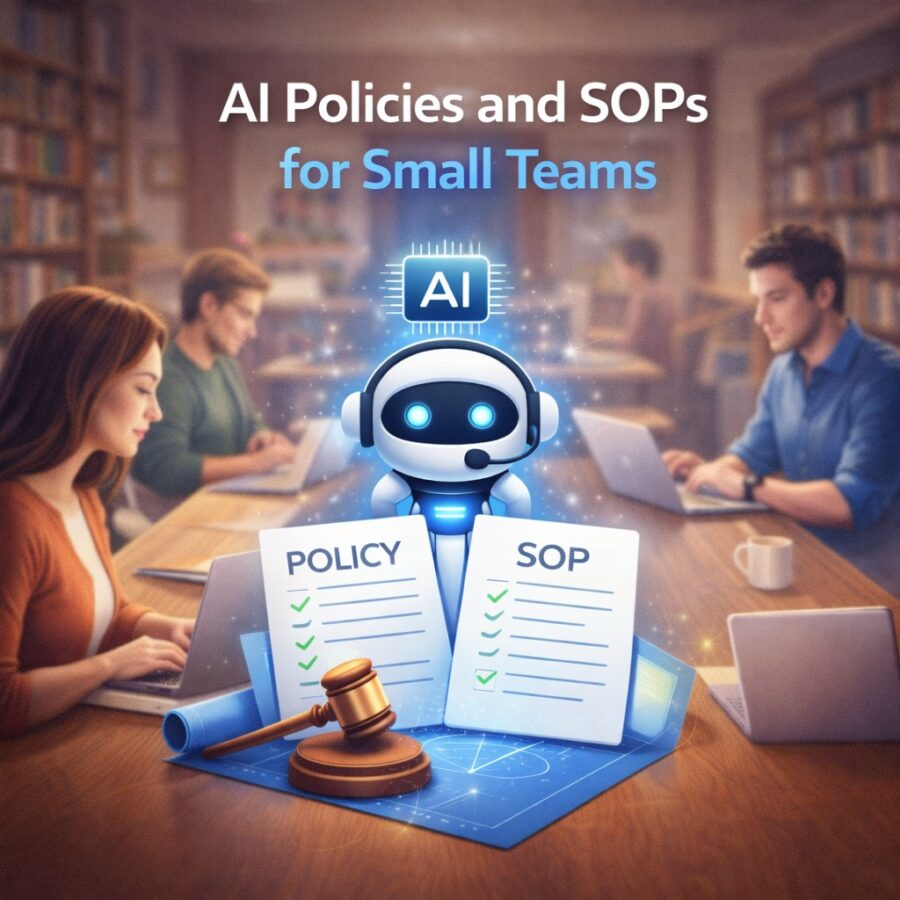Views: 0
Everyone talks about work–life balance, but for most people, it feels like chasing a unicorn. You want more time for family, fitness, or Netflix, but your inbox laughs in your face.
Meetings multiply, tasks pile up, and somehow the weekend is already over. This is where the question arises: Can AI Improve Your Work–Life Balance? Here’s How.
The short answer is yes. Artificial intelligence is no longer just for sci-fi movies or tech bros in hoodies. It is quietly slipping into everyday life, not to replace you but to relieve you.
AI can automate the boring stuff, remind you when to unplug, help you focus, and even suggest ways to spend more time doing what you actually enjoy.
In this article, we will explore how AI can help you reclaim hours, lower stress, and finally achieve the mythical balance between work and everything else.
Why Work–Life Balance Is Harder Than Ever
Before diving into the benefits of AI, let’s admit something: balance is tough because the modern workplace blurs boundaries. Remote work means your office follows you home. Smartphones ensure you are always reachable. The “just one more email” habit can chew through entire evenings.
Meanwhile, life outside work is also busy. Family responsibilities, social obligations, personal goals, and endless notifications compete for attention. Balance is not about working less; it is about working smarter. That is where AI comes in.
Can AI Improve Your Work–Life Balance? Here’s How It Starts
AI does not magically add more hours to the day, but it helps you use the ones you have more wisely. Think of AI as your invisible assistant: always awake, always organizing, and always nudging you toward better habits. From automating repetitive tasks to analyzing your time, AI tools can reveal patterns you miss and create room for breathing.

Automating Repetitive Tasks
One of the most powerful ways AI improves work–life balance is by removing repetitive, low-value tasks from your plate.
- Email Management: AI assistants can filter your inbox, highlight urgent messages, and even draft responses. Instead of drowning in threads, you deal only with what matters.
- Scheduling: No more endless back-and-forth about meeting times. AI schedulers compare calendars, suggest options, and finalize appointments.
- Data Entry: AI tools automatically log customer interactions, update spreadsheets, or populate forms. That means less typing and more time thinking.
By automating these tasks, AI frees up hours you can redirect toward creative work or personal time.
Prioritization and Smart Reminders
Balance is not just about doing less but about doing the right things at the right times. AI excels at prioritization.
- Smart To-Do Lists: Apps use AI to rank tasks by urgency, deadlines, or personal goals.
- Contextual Reminders: Instead of generic alerts, AI tools nudge you when you are most likely to take action. For example, a health app might suggest a walk after it notices you have been sitting too long.
- Focus Assistance: AI-driven apps block distracting websites during work hours and remind you to pause when fatigue sets in.
The Can AI Improve Your Work–Life Balance? Here’s How question is answered here: yes, by making sure the right task gets your attention at the right time.
Personal Health and Wellness
Work–life balance is not only about productivity. It is also about well-being. AI health tools help you take better care of yourself.
- Sleep Tracking: Wearables powered by AI analyze patterns, recommend bedtimes, and even suggest when to reduce caffeine.
- Nutrition Guidance: Apps can scan your meals and give instant feedback about calories and nutrients.
- Mental Health Support: Chatbots provide mindfulness exercises, stress reduction tips, and guided journaling.
These tools act like wellness coaches in your pocket, making sure your personal life gets the same attention as your professional one.
AI as a Boundary Setter
One of the trickiest parts of balance is knowing when to stop working. AI can help enforce boundaries you might not set yourself.
- Email Silence: Some AI assistants delay sending non-urgent emails until office hours.
- Work–Life Separation: Smart notifications distinguish between work and personal alerts, muting the former after hours.
- Time Blocking: AI calendars allocate blocks for focused work, meetings, and personal time, ensuring you do not overcommit.
By nudging you to disconnect, AI supports the lifestyle you keep promising yourself you will follow.
Smarter Collaboration
Collaboration often eats time. Meetings run long, tasks get lost, and communication misfires. AI helps teams stay efficient.
- Meeting Summaries: AI transcribes and summarizes meetings, so you do not waste time rehashing discussions.
- Real-Time Translation: Language barriers shrink with instant translations during global calls.
- Task Assignment: AI tools analyze workloads and recommend who should handle which tasks.
This keeps work smoother and prevents stress from mismanagement. Less chaos means more personal time.
Learning and Skill Development
Sometimes balance is about investing in growth without feeling overwhelmed. AI makes personal learning efficient.
- Personalized Courses: Platforms like Coursera and LinkedIn Learning recommend lessons tailored to your goals.
- Adaptive Feedback: AI tutors adjust difficulty in real time, ensuring you learn faster without frustration.
- Micro-Learning: AI delivers bite-sized lessons during small pockets of free time.
By accelerating growth, AI allows you to improve skills while still leaving room for hobbies and relaxation.
Family and Personal Life
AI is not only for the office. It improves personal life too.
- Smart Home Devices: AI controls thermostats, lighting, and groceries, reducing household chores.
- Family Scheduling: AI calendars coordinate activities for everyone, avoiding double-booked evenings.
- Entertainment Curation: Streaming platforms use AI to suggest shows or games that match family tastes.
By streamlining the daily grind, AI ensures more quality time with loved ones.
Financial Balance
Money stress undermines work–life balance. AI can improve financial health, reducing anxiety.
- Budget Tracking: AI apps analyze spending and recommend savings.
- Fraud Detection: Algorithms flag unusual activity instantly, giving peace of mind.
- Investment Tools: Robo-advisors suggest personalized strategies for building wealth.
Better money management translates to fewer late-night worries and more headspace for personal life.
Real-World Scenarios
To make the Can AI Improve Your Work–Life Balance? Here’s How discussion practical, let’s explore some examples.
- Remote Worker: Uses AI scheduling to protect evenings, ensuring family dinners are not interrupted by late calls.
- Parent: Relies on AI home assistants to manage grocery lists, organize kids’ activities, and remind them of school deadlines.
- Freelancer: Automates invoicing and uses AI writing tools to draft proposals faster, freeing up weekends.
- Manager: Depends on AI summaries to cut meeting time in half, leaving more hours for strategy and rest.
Each shows how AI quietly shifts the balance toward sanity.
The Pitfalls: When AI Hurts Balance
It is not all sunshine. AI can also tilt balance the wrong way if misused.
- Over-Reliance: Depending too much on AI may weaken problem-solving skills.
- Data Concerns: Personal health or work data in AI systems may pose privacy risks.
- Work Expansion: Sometimes AI efficiency just means more work gets assigned, not more time saved.
The key is mindful use: AI is a tool, not a cure-all.
Ethical Considerations
Using AI for balance raises questions. Should employers monitor wellness data? Do employees have a right to disconnect if AI systems nudge them otherwise? Balancing efficiency with autonomy is critical.
The Can AI Improve Your Work–Life Balance? Here’s How answer is yes, but it comes with responsibility. Both organizations and individuals must ensure AI is used to empower, not exploit.
The Future: AI as a Personal Balance Coach
Looking ahead, AI will evolve into proactive balance coaches. Imagine:
- An AI that detects stress in your voice during a call and suggests a break.
- A calendar that integrates personal goals, ensuring fitness or hobbies are never sidelined.
- AI that negotiates workloads directly with your employer to prevent burnout.
The future of work–life balance may not just involve humans setting limits but AI advocating for them.
Conclusion
So, Can AI Improve Your Work–Life Balance? Here’s How: by automating busywork, prioritizing smartly, nudging wellness, setting boundaries, smoothing collaboration, and supporting personal growth. AI is not a magic bullet, but it is a powerful ally.
Balance is no longer just about discipline. It is about design. With AI woven into work and life, you can reclaim time, reduce stress, and finally step off the hamster wheel.
AI will not stop meetings from being boring or chores from existing, but it will make both less overwhelming. That leaves more time for the stuff that truly matters—family dinners, weekend adventures, or just a quiet hour with your favorite show.
